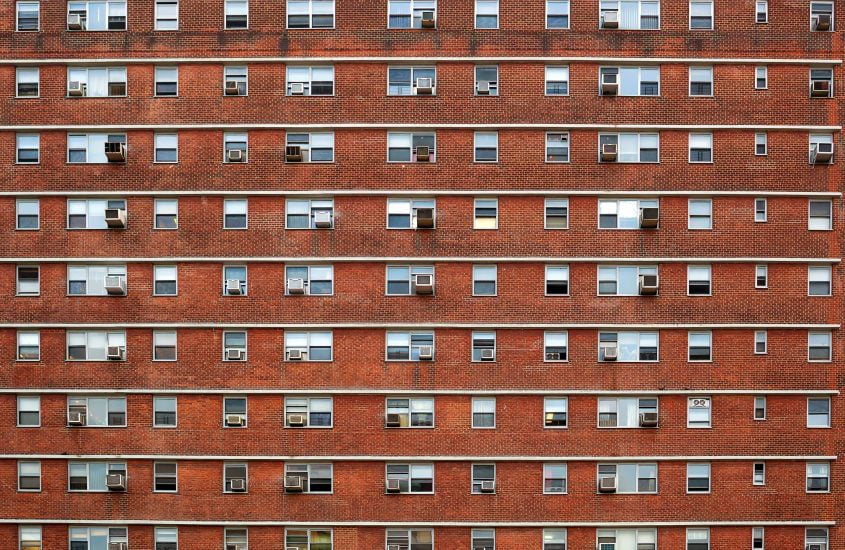I Hate Institutions! (Do I Really?)

In this broken world where we trust so little, we definitely don’t trust institutions. Specifically the media, social media, the government, and the Church.
Each of those distrusted institutions have suffered because as culture has shifted, they have gone into self-preservation mode, which has led them to be off-mission and desperate. In the example of the media, we used to have credible journalism; now we have click-bait. We people are simply being used by the institutions that were originally designed to help us. (Do you feel that way about your church?)
institutions have also been the foundations of injustice and the enablers of organized abuses of power.
We can easily bash institutions. They are faceless. They are worth the bashing. We feel power to be able to bash something in a world that feels powerless. When we are anxious, it feels good to blame something.
But we still need institutions. Trust me as I reveal this to you.
This failure of institutions and our lack of trust in institutions is at the root of our individual lostness in our lives.
Institutions give you an identity.
Institutions allow us to act together by giving us a role. You are a student, teacher, principal, an engineer, a developer, a barista, a member.
Institutions give us people to tell us who we are going to be. These beloved people give you the practices you need to become who you want to be. They provide the anchors you need as you grow. There are virtues and ethics to learn, which they willingly teach you. You are given a place.
When institutions break down, we lose our source of trust. (Have you noticed your increase of trust issues?) This is because we have lost our identity. Who am I when I’m no longer a student? Who am I when neither political party represents me? Who am I now that I’m not a member of this church? More to the gut, who will tell me who I am now that these authorities are not in my life?
This causes anxiety. A simple definition of anxiety is approaching the future with fear. A loss of structure, role, and place affects your future. Who do I trust?
There is more. When we no longer trust an institution, we lose our sense of what our responsibility is because we don’t know what our role is. Culture becomes a collapse of responsibility. I’ll take care of me. You do you.
And here we are.
We find our relationships in institutions.
We interact with people through institutions such as school, company, church, family, marriage. This is where we find our friendships, maybe your love for a lifetime.
We are in the midst of a loneliness epidemic. Coincidence?
There is a crisis of how to find friends but we find friends in institutions. So we do have need of institutions.
Institutions help us organize our relationships with other people.
Relationships with other people are often a cause of our trust issues. As we also need and desire relationships with other people.
Institutions help us organize our internal life, our thinking. This is in part because institutions help us slow things down. They establish forms and orders for decision-making. They model patience by giving us reasons to believe persistence will pay off. They can force us to obey rules we would rather ignore.
Institutions ask you to follow procedure, to make a budget, to hear out other opinions. They help us avoid the scourge of short-termism. Short-termism is a function of unstructured thinking, which leaves us adrift in the moment and unable to see beyond it.
And here we are.
Institutions are anxiety managing devices.
As an individual on your own how do you manage? Institutions outsource the worry. Someone else has the responsibility to deal with that.
Who turns on the electricity?
Is there a terrorist plot brewing in our country? Who is responsible because I can’t be.
Are the bees dying and who is responsible to prevent this from happening more?
(Do you see how we need institutions?)
Also when institutions fail they cause anxiety. This is happening often these days. Institutions then fail to provide a role. They fail to provide authority. They fail to organize how we think about our place in the future.
We have an epidemic of anxiety while at the same time we don’t trust institutions. Coincidence?
We want total independence but we really need dependence.
When institutions become too strong, we seek independence.
This is a natural progression. In the desperation for institutions to survive the cultural changes, we want to be free of their power over us. They have become users of those who they have given identity too. This is betrayal as we cling to our identity they have given us. This is so painful to our souls.
So we seek independence. Less vulnerability. I’ll take care of me. You do you.
When really to be seen by a person and have trusting relationships with persons can heal our souls.
Institutions are the hope for the oppressed.
I will let this quote from Yuval Levin convince you of this. Everything in this article has been influenced by Yuval Levin’s book, A Time to Build.
“It’s true that institutions can reinforce the rule of the strong and privileged in our society; but it is also true that without functional institutions the weak have no hope of vindicating their rights. Our institutions have sometimes embodies oppression, but they sometimes embody our highest ideals. To defend institutions is not to defend the status quo, or the strong, or the privileged. Functional institutions are most important for people who don’t have power or privilege. And though our institutions can become cold and bureaucratic, they are essential to our acting on our warmest sentiments; without them we grow isolated, alienated, and disillusioned.” –Yuval Levin, A Time to Build, pp. 166-167
Have I helped you bravely rethink the purpose of institutions? To maybe stop the bashing. And to make the brave decision to maybe trust an institution again?






Comments
Trackbacks & Pingbacks
[…] because you have trust issues with an institution, doesn’t mean your teen does. Your teen needs that very institution. […]
[…] is harsher. We don’t trust our institutions (even though we need them). Everything is so […]
[…] media is a performance-driven ecosystem. Church can feel like a performance is asked of them too. Institutions that purport to be sources of truth are all under suspicion (including the Church). All of this has […]
[…] have we overcome this to reach 28 years of marriage? Both of us have a commitment to the institution of marriage. We decided before we got married that divorce is not an option. But I don’t feel […]